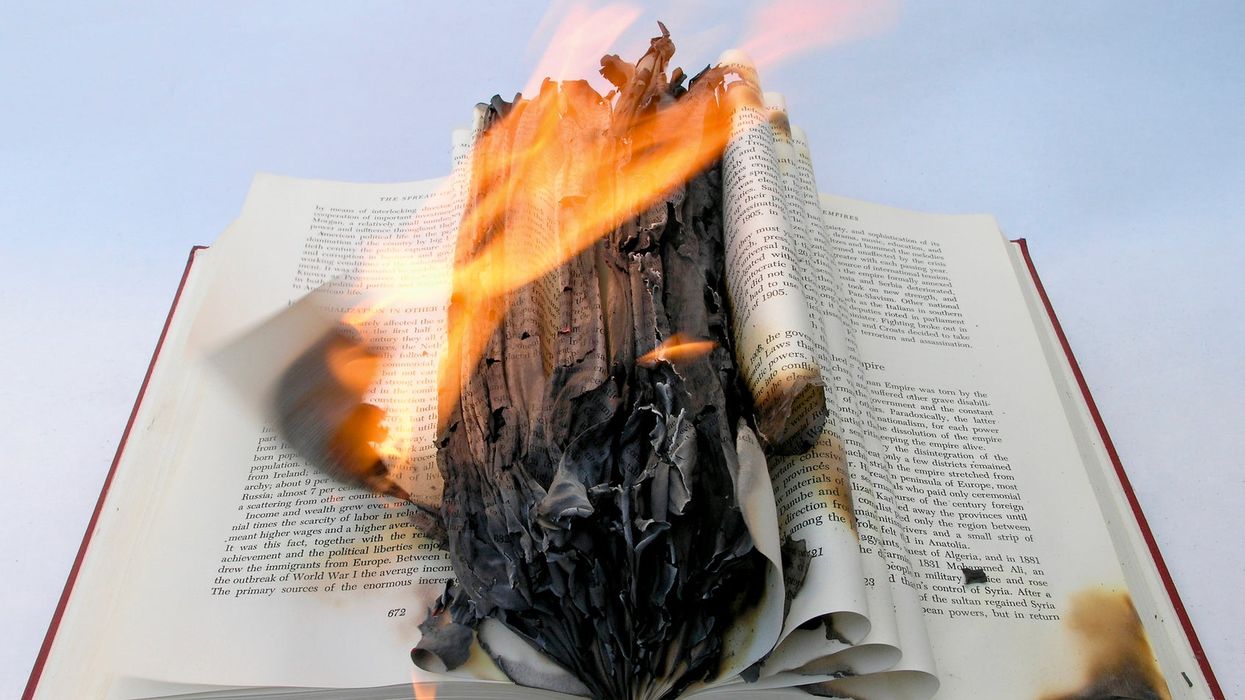News
Joe Vesey-Byrne
Oct 27, 2016

Picture:
John Weise/iStockphoto
Author and journalist Daniel Radosh mocked his son's book club, after they asked him to get permission to read Fahrenheit 451.
On Monday, Radosh tweeted an image of his reponse to the permission slip from the English Language Arts (ELA) book club.
The 'permission slip' was actually a note written by Radosh's son Milo. In the note, Milo explained that his school's book club was due to read the Ray Bradbury dystopian novel.
Bradbury claimed 451º as the temperature at which paper burns, and the main character is a 'fireman', who in Bradbury's dystopia is someone who burns books for a living.
According to Milo's note the book had been 'challenged' (horrible new-speak for: attempted censorship) because of concerns regarding the burning of the Bible that takes place in the novel, and the use of profanities. He also identified the themes of illegality and censorship as reasons the book had been challenged.
Radosh, a reporter on The Daily Show spotted a moment ripe for satire. He gave his permission, and included this message. Over 16,000 people have liked the tweet.
I love this letter! What a wonderful way to introduce students to the theme of Fahrenheit 451 that books are so dangerous that the institutions of society -- schools and parents -- might be willing to team up against children to prevent them from reading one. It's easy enough to read the book and say, 'This is crazy. It could never really happen,' but pretending to present the students at the start with what seems like a totally reasonable 'first step' is a really immersive way to teach them how insidious censorship can be. I'm sure that when the book club is over and the students realize the true intent of this letter they'll be shocked at how many of them accepted it as an actual permission slip. In addition, Milo's concern that allowing me to add this note will make him stand out as a troublemaker really brings home why most of the characters find it easier to accept the world they live in rather than challenge it. I assured him that his teacher would have his back. Daniel Radosh
Some questioned whether or not Radosh's feigned praise was in fact the correct interpretation, and they suggested that the ELA book club may indeed have been attempting a lesson in censorship.
Radosh remained doubtful.
While Radosh's response may seem like an overreaction, the exercise of 'challenging' the books in school and public libraries is commonplace in America.
The American Library Association (ALA) compiles a list each year of the books that have had the most 'challenges'.
In recent years books which feature LGBT themes and, or characters, have faced an increasing number of objections from parents and private citizens.
Ironically, given the concerns about Fahrenheit 451, the Bible featured prominently in the ALA's 2016 list of banned books, in part due to the First Amendment's prohibition on public funds being used to finance religion.
A few hours after posting, Radosh shared this moment from the 1966 adaptation of Fahrenheit 451 by François Truffaut.
More: 10 books banned in America this year
More: British people happy to be poorer if it means fewer foreigners, poll shows
Top 100
The Conversation (0)













